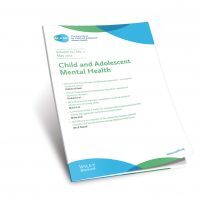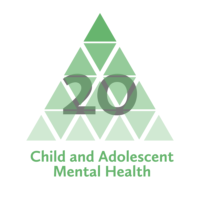Survey
-

Dimensions of cognition, behaviour, and mental health in struggling learners: A spotlight on girls
Open Access paper from JCPP Advances – “Gender biases to stereotypically male behaviours are prevalent among practitioners, even when the focus is on identifying cognitive and learning difficulties. This underscores the need to include cognitive and female-representative criteria in diagnostic systems to identify girls whose difficulties could go easily undetected.” Jacalyn Guy (pic) et al.
Read more -

Russian adolescent mental health in 2002, 2015 and during the COVID-19 pandemic in 2021
Paper from the CAMH journal – Cross-sectional school-based surveys of 12- to 18-year-olds were carried out in a Siberian city using the Strengths and Difficulties Questionnaire, data on tobacco, alcohol and drug use and socio-demographic information. We examined the effect of cohort, gender, family composition and parental occupation on mental health and substance use. Helena R. Slobodskaya et al.
Read more -

Barriers to emergency department clinicians’ confidence in providing paediatric trauma-informed care
Open Access paper from JCPP Advances – “The available evidence indicates that clinicians internationally need further education and training to enhance their knowledge and confidence in providing trauma-informed psychosocial care”. Nimrah Afzal et al.
Read more -

How interactions between ADHD and schools affect educational achievement: a family-based genetically sensitive study
Open Access paper from the JCPP – “We linked data on ADHD symptoms of inattention and hyperactivity and parent–child ADHD polygenic scores (PGS) from the Norwegian Mother, Father, and Child Cohort Study (MoBa) to achievement in standardised tests and school identifiers. We estimated interactions of schools with individual differences between students in inattention, hyperactivity, and ADHD-PGS using multilevel models with random slopes for ADHD effects on achievement over schools”. Rosa Cheesman (pic), et al.
Read more -

How accurate are teachers’ assessments of children’s mental health?
Frances Mathews, Tamsin Ford and colleagues have performed a secondary analysis of the 2004 British Child and Adolescent Mental Health Survey, to understand how accurately teacher concern predicts the presence of a mental disorder in school children.
Read more -

Largest study into impact of pandemic on global communities
The University of Southampton is taking a leading role in the largest worldwide study into the mental and physical impact of the Covid-19 pandemic.
Read more -

Modern illness or a thing of the past? Surveillance study of childhood/adolescent Sydenham’s chorea in the UK and the Republic of Ireland
Sydenham’s chorea is a rare condition that can have a severe impact on children and families. Tamsin discusses her and her teams research so far, explaining why it is important for clinicians working in child mental health services to report any suspected cases.
Read more -

Digital interventions for young people: addressing the gap between development and implementation
Closing the gap between reliability and safety of mental health apps as an intervention.
Read more -

Most cited CAMH paper #17 of 25: Teachers’ Recognition of Children’s Mental Health Problems
Maria E. Loades, Kiki Mastroyannopoulou.
Read more
Key Practitioner Message includes; Teachers were generally good at recognising the existence and severity of symptoms of problems (behavioural or emotional) presented by a child described in a vignette. -

Most cited CAMH paper joint #20 of 25: Implementing routine outcome measures in child and adolescent mental health services: from present to future practice
Martin J Batty, Maria Moldavsky, Pooria Sarrami Foroushani, Sarah Pass, Michael Marriott, Kapil Sayal, Chris Hollis.
Read more
Key Practitioner Message includes; It is important to place outcomes in the context of the type of service, case complexity, diagnosis/clinical cluster and treatment goals.